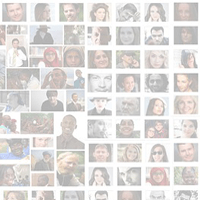Social Login Usage Surges While Consumers Demand Transparency

Web users are increasingly taking advantage of social login capabilities.
Social login provider Gigya recently released results from its study examining how consumers perceive and respond to privacy, personalization and social login. The study indicates that the adoption of social login continues to surge as consumers place a premium on convenience and ease-of-use.
The Gigya survey revealed that 77 percent of consumers have logged into websites and mobile apps using social login - a 45 percent increase in the last two years. More than half of respondents indicated they use social login because they don't want to spend time filling in registration forms in order to register on a site. Yet despite the demand for instant gratification, consumers are still concerned about privacy and want to trust the brand or technology they are interacting and sharing information with.
Additional highlights from the study include:
- Of those who have used social login, 66 percent of respondents report using it either "whenever it is an option" or "often," nearly doubling the percentage (35) from 2012
- Of those that use social login, 53 percent do so because they don't want to spend time filling in registration forms, whereas 47 percent do so because they don't want to create or remember another user name or password
- More than half of consumers report feeling more comfortable using social logins that have a clear indication of what data will be collected and how it will be used, as opposed to when they don't receive those assurances
- 84 percent of consumers have abandoned filling out an online registration form because they were unhappy with the amount of information being asked of them
- 60 percent have abandoned a purchase because it required filing out a registration form
- 43 percent of consumers have ignored future communications from a company after being sent irrelevant information or products
The results concluded that while consumers are increasingly moving away from lengthy registration forms, they still want to ensure that their information is protected. Forty-seven percent of consumers revealed they are concerned about organizations selling their data, reaffirming the need for brands to build trust with consumers. Eighty-six percent of consumers, in fact, are wary of data brokers and think they should be more heavily regulated by the government.
"It's clear that consumers today have reached a threshold where convenience is king. Our study shows that social login use is becoming essentially ubiquitous and is becoming a standard for consumers when interacting with brands on web and mobile," said Patrick Salyer, CEO of Gigya, which will process more than one billion logins in 2014. "Yet the need for transparency into how information is being collected and used has not diminished. Consumers are willing to share information if they know what it is being used for and how it will benefit them."
Gigya highlights several criteria for brands looking to leverage social login to provide better user experiences and personalize marketing while also meeting privacy concerns including data protection (not selling the social profile data of users or their friends to third parties), friend protection (not sending private messages to a user's friend(s) unless prompted by the user), social publishing (not publicly posting to a user's social network account on behalf of a user without the user's explicit permission) and email opt-in (not using personal information obtained via social login to send newsletters or promotional emails unless users have opted-in to such notifications).

Subscribe to Our Newsletter!
Latest in Social Media










